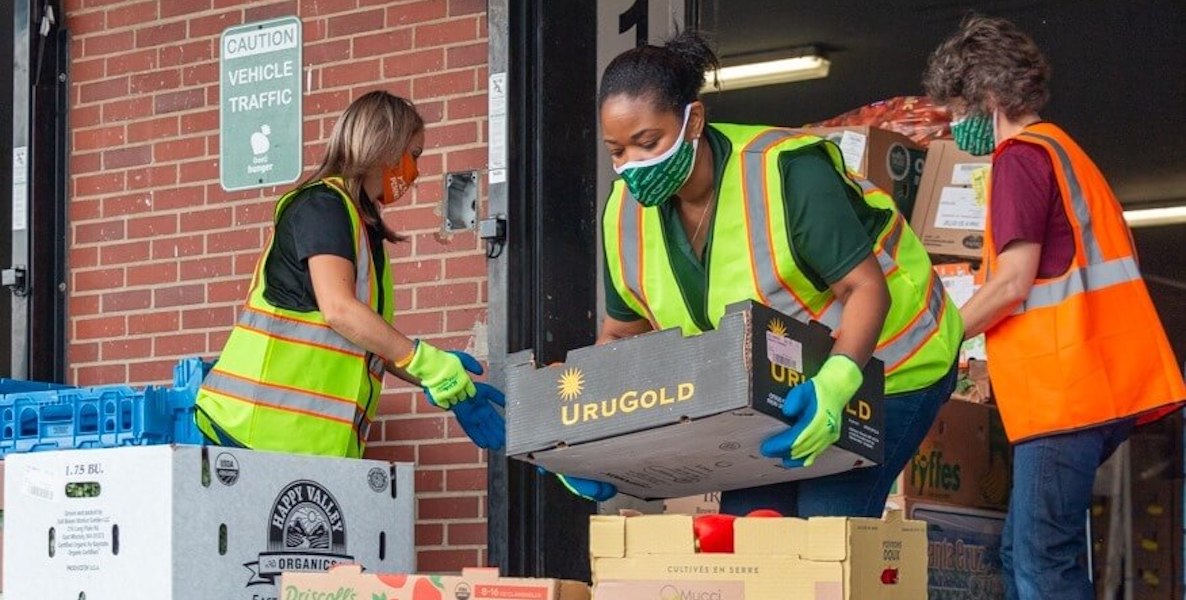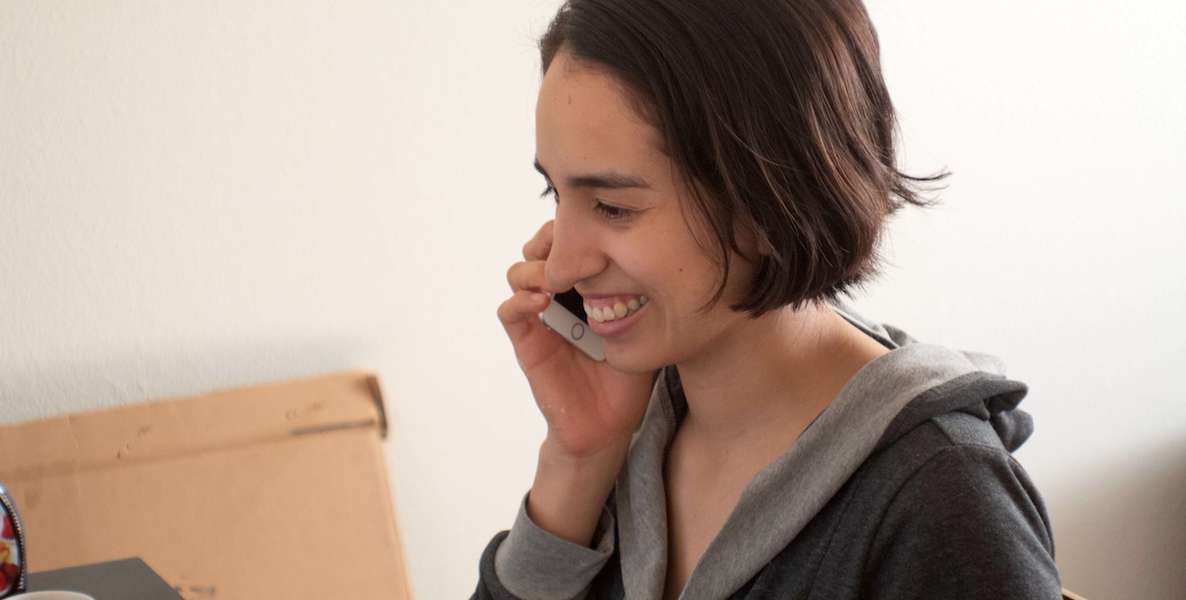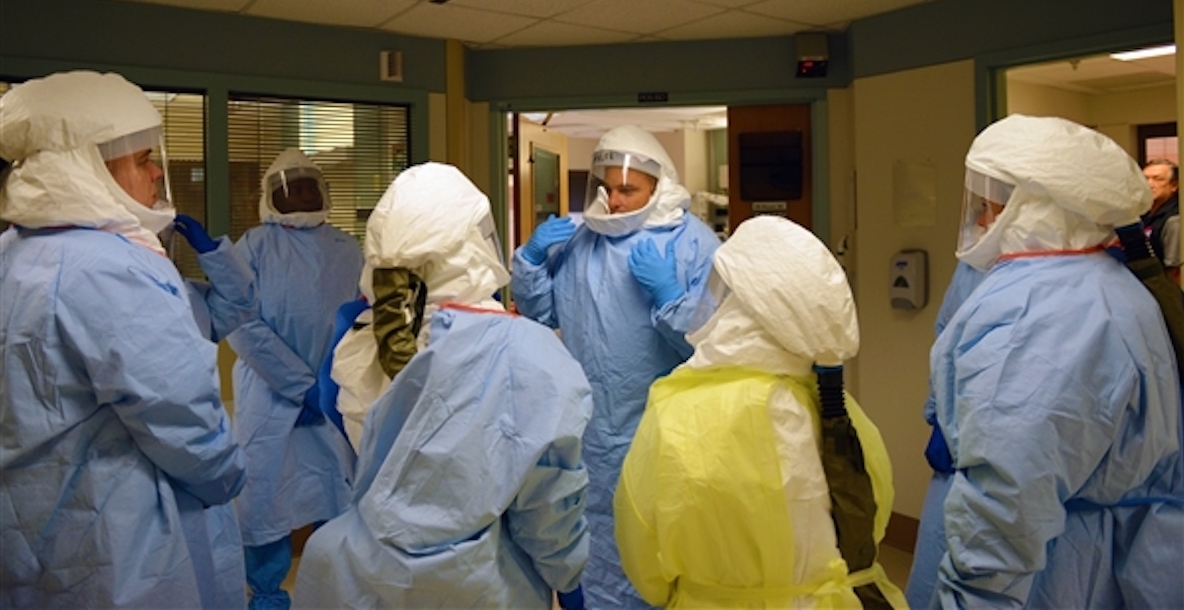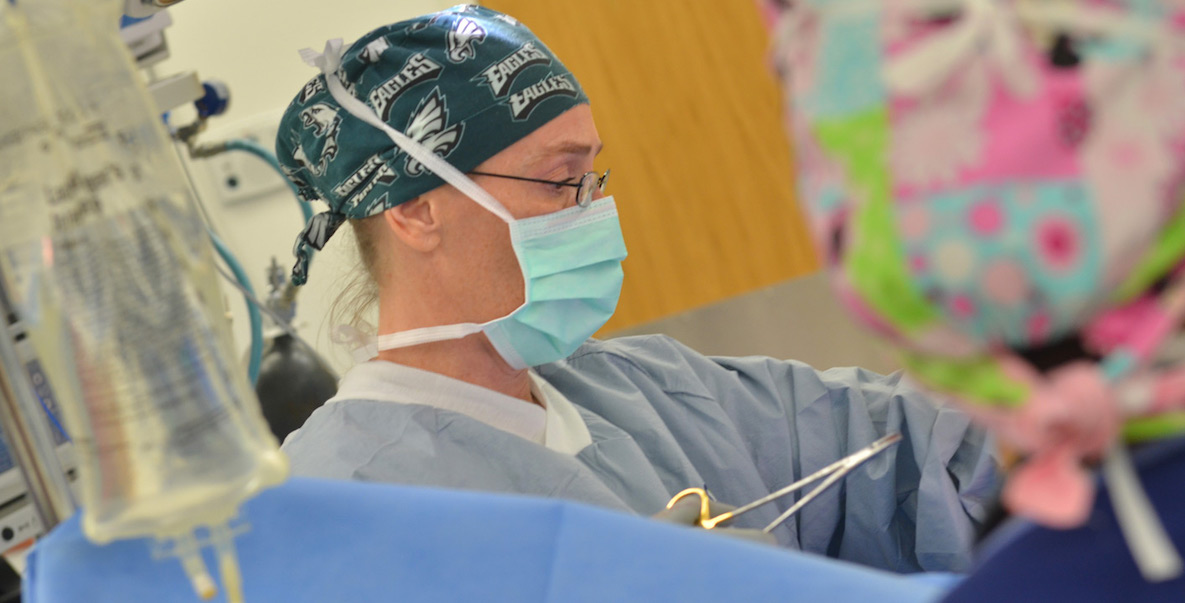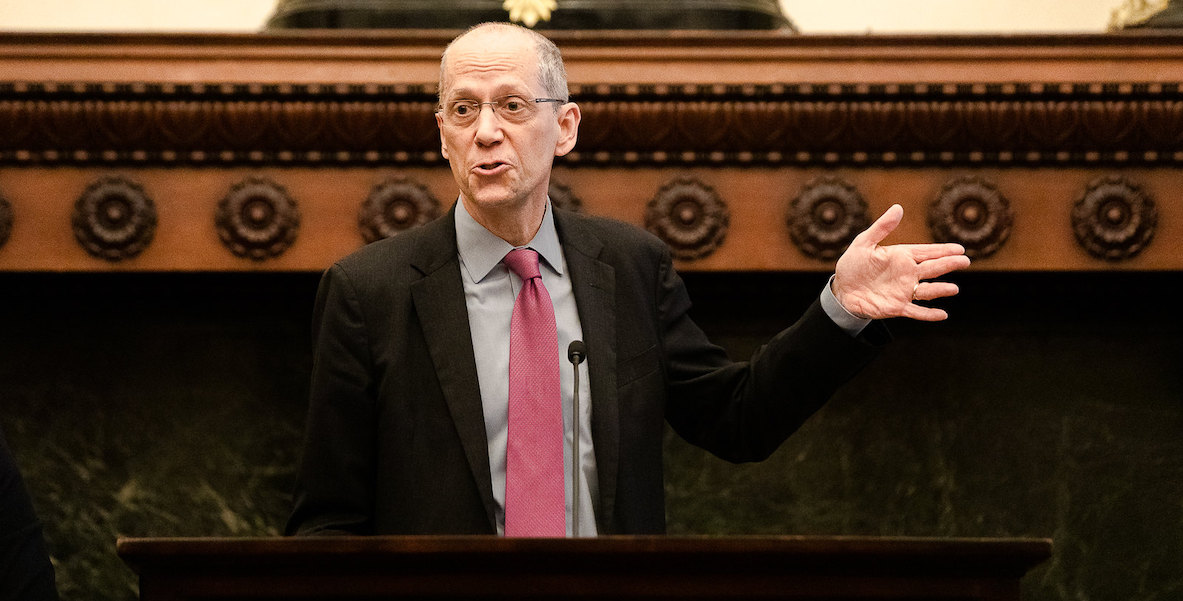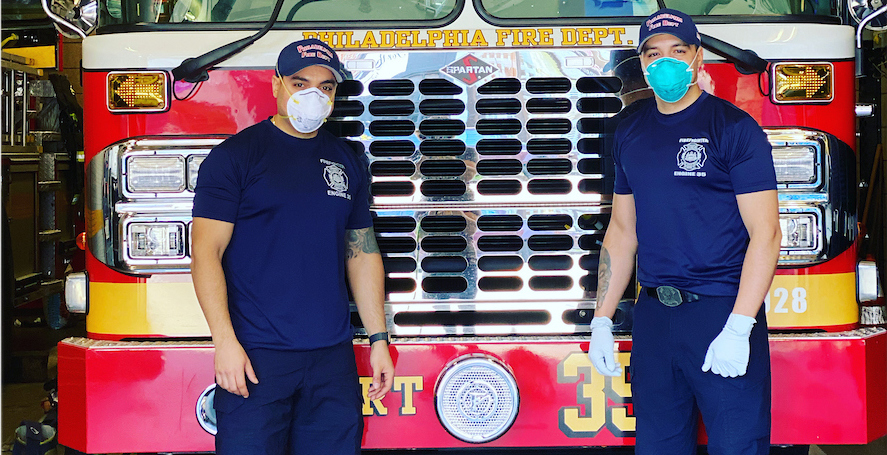Contact tracing is a lot like teaching sex education to middle schoolers. At least, that’s how it feels for Tolulope “Tolu” Oyetunde, one of the nine Health Department contact tracing coordinators, who assumed her position on May 26.
Oyetunde, a 2020 graduate of Penn’s Master in Public Health (MPH) program, has spent the last few years teaching health class to 7th and 8th graders at Henry C. Lea Elementary School in West Philly. She believes that both lines of work include awkward questioning, general discomfort and, most significantly, a focus on communicating sensitive information respectfully.
Contact tracing is that now-familiar process of alerting the close contacts of a person who has tested positive for Covid-19 that they may have been exposed, and instructing those contacts on how to effectively protect themselves and mitigate the spread of the virus.
![]() The contact-tracing process, Oyetunde says, is akin to “put[ting] together pieces of a puzzle.” It’s not enough simply to ask a person for information about their closest contacts; tracers must seek answers, investigating every potential contact a person may have had, from her workplace to her bus route.
The contact-tracing process, Oyetunde says, is akin to “put[ting] together pieces of a puzzle.” It’s not enough simply to ask a person for information about their closest contacts; tracers must seek answers, investigating every potential contact a person may have had, from her workplace to her bus route.
The method may be a hot-button issue now, but the process has been used for decades, notably with sexually transmitted infections (STIs) and tuberculosis. Still, the city has never had to rely on digital infrastructure as heavily as it must with Covid-19.
“From our perspective,” says James Garrow, director of communications at the Philadelphia Department of Health, “we basically needed to build an entire division of the Health Department up from scratch.”
That’s because Covid-19 contact tracing required implementing a new software package that would allow tracing to take place digitally, as well as hiring and training a whole new staff, without anyone ever coming into an office.
“Our ultimate goal is just to make sure that our city is safe and well,” Oyetunde says.
Since early May, the city has hired 119 team members, including 11 in training, 11 in supervising and programming, 13 case investigators, 92 contact tracers and two data managers. (Contact tracers make about $47,000 a year.)
Critics—including Penn’s Angela Duckworth in this Inquirer op-ed—have argued that we need a far bigger, 2,000-person team in Philly, and 4,000 tracers statewide, to ensure we stop the spread of new infections as quickly as possible. That, they contend, is necessary to open up the economy safely and get us on the road to recovery—which would make the cost of additional tracers worth it.
The Pennsylvania Health Department announced on July 31 that it would pivot from its original plan to tap volunteer tracers and instead hire 1,000 paid workers.
In Philly, as of August 13, the Department of Health had hired 119 tracers, with no current plans to hire more—although the average number of new cases is around 115 per day.
Garrow says the organization is confident in the number they have, and that further hiring “is a significant investment in time and human resources…. If we see the number of new cases or the average number of contacts rise, we would consider hiring more staff.”
A Day In the Life
While the city’s team may be sorely lacking in size, the day-in-the-life of the tracers our city does have is fascinating, requiring not just skills but emotional aptitude. As the Department of Health works on gaining Philadelphians’ trust, Garrow believes that the operation is dependent on the personal skills and emotional intelligence of the people on the phone.
The way it works is this: When a person tests positive for Covid-19 at a state or city lab, or at a private lab like Quest, LabCorp, and BioReference, the health department assigns a case investigator to notify the patient. In that call, the investigator will gather a list of close contacts from the case, including friends, family and coworkers.
Then, a contact tracer will notify each one that they may have been exposed to the virus, while preserving the anonymity of the original case. This initial call from a contact tracer can last anywhere from 15 to 45 minutes, and veer from matter-of-fact and clinical one minute, to highly emotional the next.
The tracer helps the contact think through a quarantine plan and is available to assist in daily symptom checks for the next 14 days. If, during the 14-day period, a contact reports symptoms or positive test results for Covid-19, that person becomes a case, and can subsequently give tracers a list of their close contacts. If a contact remains symptom-free after the isolation period, the tracer investigates no further.
![]() In addition to contact tracing, Oyetunde now works as one of the city’s primary coordinators. When she does do the occasional tracing call, it is usually because her team is low on staff, or because she must sort out, as she puts it, “complex situations” with contacts. As a primary coordinator, Oyetunde’s daily tasks include managing a team of tracers, managing a master list of contacts, and resolving these difficult encounters.
In addition to contact tracing, Oyetunde now works as one of the city’s primary coordinators. When she does do the occasional tracing call, it is usually because her team is low on staff, or because she must sort out, as she puts it, “complex situations” with contacts. As a primary coordinator, Oyetunde’s daily tasks include managing a team of tracers, managing a master list of contacts, and resolving these difficult encounters.
Work starts for Oyetunde at 8:30 am, when she logs onto her computer to send a good morning message to rally her tracing team. She also makes sure their day ends at 5pm. Oyetunde believes that the quality of her tracers’ work depends on their willingness to take time for themselves; calling multiple people each day to tell them they may have been exposed to a virus that has already killed more than 1,500 individuals in Philly alone can take a mental toll.
One obstacle the City didn’t face when getting started: a lack in prospective tracers. When the openings were first advertised on social media, Garrow had to take the post down within hours after receiving so many applications that he could not read them all.
“It’s really easy to get burnt out,” says Oyetunde, “because there’s no shortage of contacts.”
The department keeps track of these contacts with ID numbers on a master list that helps to identify and group exposed people together by household or workplace. Oyetunde’s primary coordinator duties include giving out assignments to tracers based on the groupings in the master list. She also attempts to pair contacts with tracers who speak their native language for a more comfortable, productive call.
The More Challenging Aspects of the Job
One of the biggest challenges of complex tracing situations comes down to misinformation around Covid-19.
In one scenario, Oyetunde dealt with a family who wanted to stay at a hotel during their quarantine period, and were scared to return home. Though she advised the family to go home and isolate there, they were still scared and frustrated, and did not heed her advice. At that point, Oyetunde says that “there is nothing more that we can do other than really try to give the right information and really try to convince them to follow our guidelines.”
Thankfully, the majority of contacts Oyetunde has come across are more receptive to instructions. She believes that this receptiveness is largely due to the public’s increased familiarity with contact tracing and the science behind how Covid-19 spreads. When she started this work, “the only people who understood my job were health care workers,” she says. Now, Oyetunde is grateful for more recognition and acceptance.
Despite the more challenging aspects of her job, Oyetunde wouldn’t want to be doing anything else. “If there’s another pandemic—I hope there isn’t, I really, really hope there isn’t—but if there is, I’m definitely going to try to be the first to get on the [contact tracing] team,” she says.
Her training at Penn focused more on policy and education, but she feels that this job has given her a strong foundation in working with data and infectious diseases. “This [job] has definitely empowered me to know I can diversify what I do with public health,” Oyetunde says.
Building the Program
As Philly developed its contact-tracing program, the Health Department looked to other cities, state agencies and local hospitals for guidance.
Among the organizations the city consulted was Penn Medicine, which began tracing their Covid-19 patients in late April. Garrow thinks that one of the reasons Penn managed to implement contact tracing so swiftly (reaching over 1,300 patients in the first two weeks of the initiative) was that they already had relationships and trust with their pool of patients.
One obstacle the City didn’t face when getting started: a lack in prospective tracers. When the openings, which offer salaries between $38,000 and $52,000, were first advertised on social media, Garrow had to take the post down within hours after receiving so many applications that he could not read them all.
But it’s that influx of interest that has made it easier to find and hire, as Garrow puts it, “the cream of the crop people who are multilingual…have had Covid-19 themselves so they’re empathetic to the situation, [or] have some connection to the community.”
The biggest obstacles tracers face with each call are establishing their credentials, and translating necessary information into lay terms. The former is a challenge from the moment a tracer dials the phone number, because without clear identification on the caller I.D., the recipient might take it as a spam call or a prank. These fears don’t come out of thin air.
“We’ve already heard of instances in Philadelphia where people get these [fake] calls,” says Garrow. “That’s a really big concern of ours.”
To alleviate some of the skepticism, the department has created an information page that provides a system for verifying the legitimacy of your tracer. If tracers are unable to reach a contact, they are also authorized to leave a voice message in hopes that someone will return their call.
Once on the phone with a contact, the challenge of translating necessary information is two-fold: On the one hand, it means having a multilingual team, including an entire Spanish-speaking one. On the other hand, it means translating Covid-19 jargon into language that informs, prompts and doesn’t completely scare off a case or contact.
Even when contacts do want to comply with tracers, fear of unemployment or the inability to quarantine properly in their homes can hinder a more serious period of isolation. To combat these obstacles, the department sends care packages of masks and thermometers, and is working “to expand the services that we can provide to folks,” says Garrow.
If a contact has an unsafe home situation, the department may also be able to provide a hotel room for quarantine.
![]() One of the biggest lessons Oyetunde has gained in her time as a tracer is that effective communication is reliant on specific language. She’s learned to explain to contacts that going into “quarantine” and “isolation” means seriously cutting off physical contact with others to the best of their abilities: Even a short trip to the grocery store, she explains, could potentially spread the virus further.
One of the biggest lessons Oyetunde has gained in her time as a tracer is that effective communication is reliant on specific language. She’s learned to explain to contacts that going into “quarantine” and “isolation” means seriously cutting off physical contact with others to the best of their abilities: Even a short trip to the grocery store, she explains, could potentially spread the virus further.
Some people thank Oyetunde for calling and follow her instructions; others grow angry at the news; others never pick up the phone at all.
“When you look at Covid in the grand scheme of things,” says Oyetunde, “it can seem very daunting…in terms of how we will ever get over this.”
She believes that contact tracing is making its impact in small ways that eventually add up to big changes, namely the significant reduction of exposure.
If there’s one thing she wants Philadelphia citizens to know about contact tracers, it’s that when they call, they’re calling out of genuine care. “Our ultimate goal is just to make sure that our city is safe and well.”
Clarification: The story was updated to indicate the range of salaries on the contract tracing team, dependent on experience and education.
Header photo by Brian Wangenheim / Unsplash

